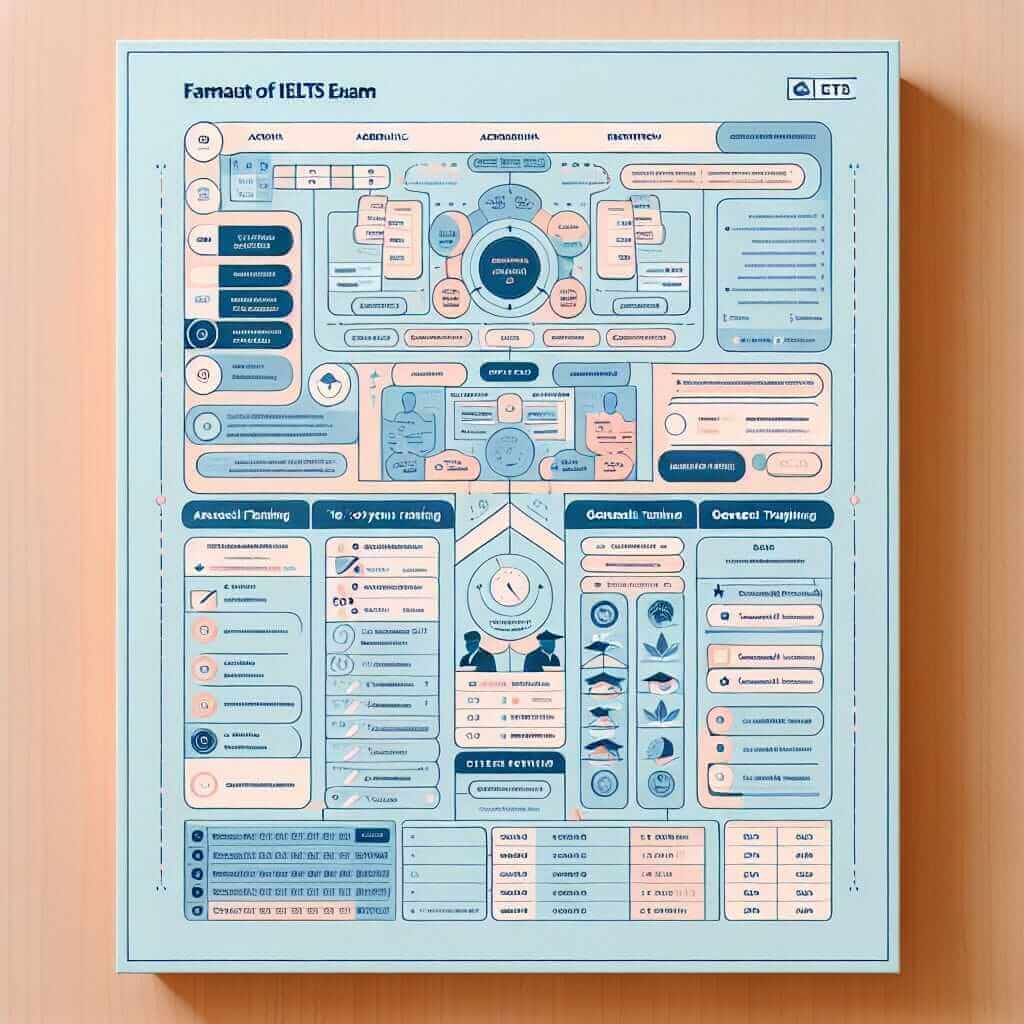As an IELTS instructor with over two decades of experience, I’ve guided countless students towards achieving their desired band scores. One of the most frequent questions I encounter is: “What are the different sections of the IELTS?” Understanding the exam structure is fundamental to effective preparation. So, let’s delve into the components of this globally recognized English language proficiency test.
IELTS Exam: A Breakdown
The IELTS exam assesses your English language abilities across four key skills: Listening, Reading, Writing, and Speaking. There are two IELTS test formats: IELTS Academic and IELTS General Training. Both formats share the same Listening and Speaking sections, while the Reading and Writing sections differ based on the test format.
Listening
The Listening section is identical for both IELTS Academic and General Training. It comprises four recordings of native English speakers in various everyday social and academic contexts.
- Duration: 30 minutes (plus 10 minutes for transferring answers)
- Number of Sections: 4
- Question Types: Multiple choice, matching, plan/map/diagram labeling, form/note/table/flow-chart/summary completion, sentence completion, short answer questions.
Reading
IELTS Academic:
- Duration: 60 minutes
- Number of Sections: 3
- Text Types: Extracts from books, journals, magazines, and newspapers.
- Question Types: Similar to the Listening section, with the addition of identifying information (True/False/Not Given) and matching headings to paragraphs.
IELTS General Training:
- Duration: 60 minutes
- Number of Sections: 3
- Text Types: Extracts from advertisements, notices, official documents, work-related documents, and books, magazines, and newspapers.
- Question Types: Similar to the Listening section, with the addition of identifying information (True/False/Not Given) and matching headings to paragraphs.

Writing
IELTS Academic:
- Duration: 60 minutes
- Number of Tasks: 2
- Task 1 (20 minutes): Summarize, describe, or explain visual information presented in a graph, table, chart, or diagram (minimum 150 words).
- Task 2 (40 minutes): Respond to an opinion, problem, or argument presented in an essay format (minimum 250 words).
IELTS General Training:
- Duration: 60 minutes
- Number of Tasks: 2
- Task 1 (20 minutes): Write a letter in response to a given situation (minimum 150 words).
- Task 2 (40 minutes): Respond to an opinion, problem, or argument presented in an essay format (minimum 250 words).
Speaking
The Speaking section is the same for both IELTS Academic and General Training. It involves a face-to-face interview with a certified IELTS examiner.
- Duration: 11-14 minutes
- Number of Parts: 3
- Part 1 (4-5 minutes): Introduction and interview on familiar topics.
- Part 2 (3-4 minutes): Individual long turn (speaking for 1-2 minutes on a given topic with 1 minute to prepare).
- Part 3 (4-5 minutes): Two-way discussion related to the topic in Part 2.
Preparation Tips for Success
Understanding the different sections is just the first step. To truly excel, consider these essential preparation tips:
- Practice Regularly: Familiarize yourself with the exam format and question types by taking practice tests under timed conditions.
- Enhance Your Vocabulary: A strong vocabulary is crucial for all sections. Make an effort to learn new words and use them in context.
- Focus on Grammar and Accuracy: While fluency is important, grammatical accuracy is equally vital, especially in the Writing and Speaking sections.
- Develop Effective Time Management: Time management is crucial in the IELTS exam. Practice allocating your time wisely for each section and question.
- Seek Feedback: Have a qualified IELTS instructor or tutor review your practice tests and provide constructive feedback on areas for improvement.
Conclusion
A thorough understanding of the IELTS exam format and dedicated preparation are key to achieving your desired band score. Remember to utilize available resources effectively, focus on your weaknesses, and practice consistently. Good luck!